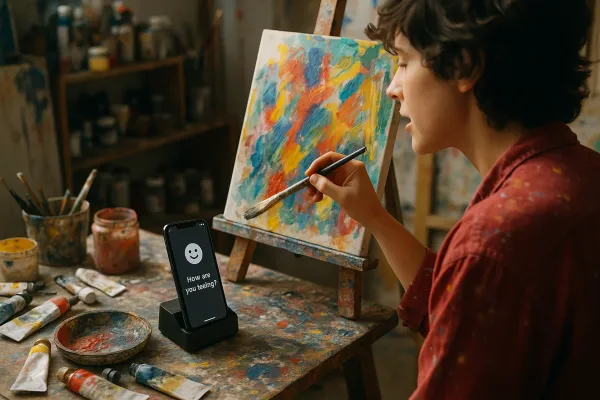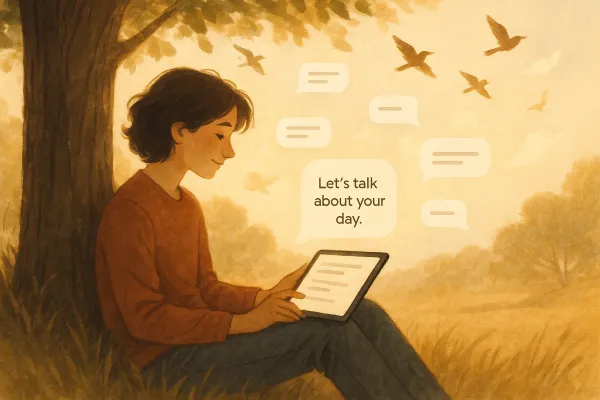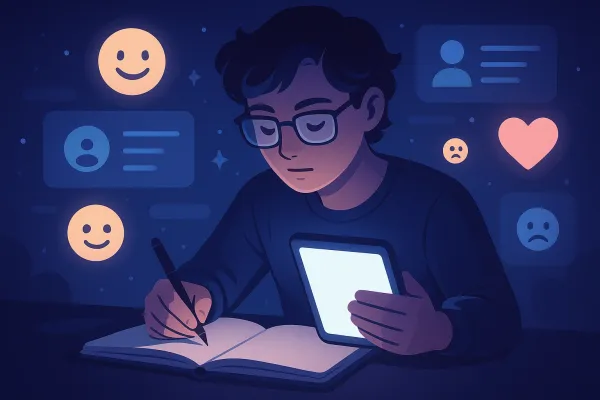The Rise of AI in Mental Health: How Technology Is Shaping Emotional Support

As mental health challenges reach unprecedented levels globally, AI-powered tools are emerging as critical allies in bridging the care gap. From chatbots offering immediate support to predictive algorithms identifying early warning signs, technology is redefining how we approach emotional well-being. By 2025, AI mental health apps like Wysa, Woebot, and WTMF are not just supplements to traditional therapy-they’re becoming lifelines for millions seeking accessible, stigma-free support.

The AI Mental Health Boom
The global mental health crisis, exacerbated by therapist shortages and rising costs, has created a demand for scalable solutions. AI chatbots fill this void by providing 24/7 support, personalized interventions, and anonymity. Apps like Youper use cognitive-behavioral therapy (CBT) techniques to help users reframe negative thoughts, while Woebot’s clinical trials show a 30% reduction in depression and anxiety symptoms through daily check-ins and mood tracking. These tools leverage natural language processing (NLP) to analyze text and voice cues, adapting responses to users’ emotional states in real time.
How AI Delivers Emotional Support
- Personalized Interventions: Apps like WTMF use machine learning to tailor conversations based on user history, offering coping strategies aligned with individual needs. For example, if a user mentions chronic stress, the chatbot might suggest mindfulness exercises or breathing techniques.
- Emotion Recognition: Advanced sentiment analysis detects subtle shifts in mood, enabling chatbots to respond empathetically. Studies show users often feel “heard” by AI, especially when discussing stigmatized topics like self-harm or loneliness.
- Crisis Prevention: AI tools like Neurofit monitor physiological data (e.g., heart rate variability) to predict stress spikes, intervening before crises escalate.

The Human-AI Trust Paradox
While AI chatbots excel at providing nonjudgmental support, their effectiveness hinges on users’ perception of their “humanness.” Research reveals that emotional support from chatbots is most trusted when users implicitly attribute human-like qualities to them. However, mimicking human empathy too closely can backfire-generic responses like “I understand” often feel robotic, undermining trust. Successful apps like WTMF strike a balance by focusing on active listening and actionable advice, avoiding over-personalization.
Challenges and Ethical Concerns
- Bias and Accuracy: AI models trained on limited datasets may overlook cultural nuances or misdiagnose symptoms. For instance, a chatbot might misinterpret sarcasm as genuine distress.
- Overreliance: While AI apps reduce barriers to care, they cannot replace human therapists for severe conditions like schizophrenia or bipolar disorder.
- Privacy Risks: Sensitive data collected by apps must be encrypted and anonymized to prevent breaches. WTMF and similar tools address this with end-to-end encryption and strict data-minimization policies.

The Future of AI in Mental Health
By 2025, AI tools will likely integrate multimodal inputs-combining voice, text, and biometric data-to offer hyper-personalized care. For example, WTMF could analyze speech patterns and heart rate to detect anxiety attacks before they peak. Partnerships with wearables like Fitbit and Apple Watch will enable real-time health monitoring, while generative AI advances will allow chatbots to simulate therapeutic dialogues with unprecedented nuance.
However, the field must prioritize ethical guardrails:
- Transparency: Users should know when they’re interacting with AI and how their data is used.
- Human Oversight: Apps must escalate crises to licensed professionals, as seen in Wysa’s hybrid model.
- Regulatory Compliance: FDA-like frameworks are needed to validate AI tools’ efficacy and safety.
Conclusion
AI is not replacing therapists-it’s expanding access to mental health care. For the 1 in 5 adults facing mental health challenges, apps like WTMF offer a first step toward healing: a judgment-free space to articulate fears, track progress, and regain agency. As technology evolves, the goal remains clear: to make emotional support as ubiquitous as the devices we carry, ensuring no one struggles in silence.
Inspired by: Forbes 2025 (AI therapy tools), Nature 2024 (emotional sanctuary), Frontiers in Psychology 2024 (mind perception studies).



